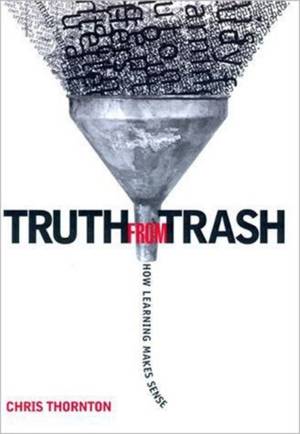
- Afhalen na 1 uur in een winkel met voorraad
- Gratis thuislevering in België vanaf € 30
- Ruim aanbod met 7 miljoen producten
- Afhalen na 1 uur in een winkel met voorraad
- Gratis thuislevering in België vanaf € 30
- Ruim aanbod met 7 miljoen producten
Omschrijving
Chris Thornton makes the compelling claim that learning is not a passive discovery operation but an active process involving creativity on the part of the learner.
This study of learning in autonomous agents offers a bracing intellectual adventure. Chris Thornton makes the compelling claim that learning is not a passive discovery operation but an active process involving creativity on the part of the learner. Although theorists of machine learning tell us that all learning methods contribute some form of bias and thus involve a degree of creativity, Thornton carries the idea much further. He describes an incremental process, recursive relational learning, in which the results of one learning step serve as the basis for the next. Very high-level recodings are then substantially the creative artifacts of the learner's own processing. Lower-level recodings are more objective in that their properties are more severely constrained by the source data. Thornton sees consciousness as a process at the outer fringe of relational learning, just prior to the onset of creativity. According to this view, we cannot assume consciousness to be an exclusively human phenomenon, but rather the expected feature of any cognitive mechanism able to engage in extended flights of relational learning.
Thornton presents key background material in an entertaining manner, using extensive mental imagery and a minimum of mathematics. Anecdotes and dialogue add to the text's informality.
Specificaties
Betrokkenen
- Auteur(s):
- Uitgeverij:
Inhoud
- Aantal bladzijden:
- 126
- Taal:
- Engels
- Reeks:
Eigenschappen
- Productcode (EAN):
- 9780262201278
- Verschijningsdatum:
- 29/02/2000
- Uitvoering:
- Hardcover
- Formaat:
- Genaaid
- Afmetingen:
- 156 mm x 235 mm
- Gewicht:
- 480 g

Alleen bij Standaard Boekhandel
Beoordelingen
We publiceren alleen reviews die voldoen aan de voorwaarden voor reviews. Bekijk onze voorwaarden voor reviews.











